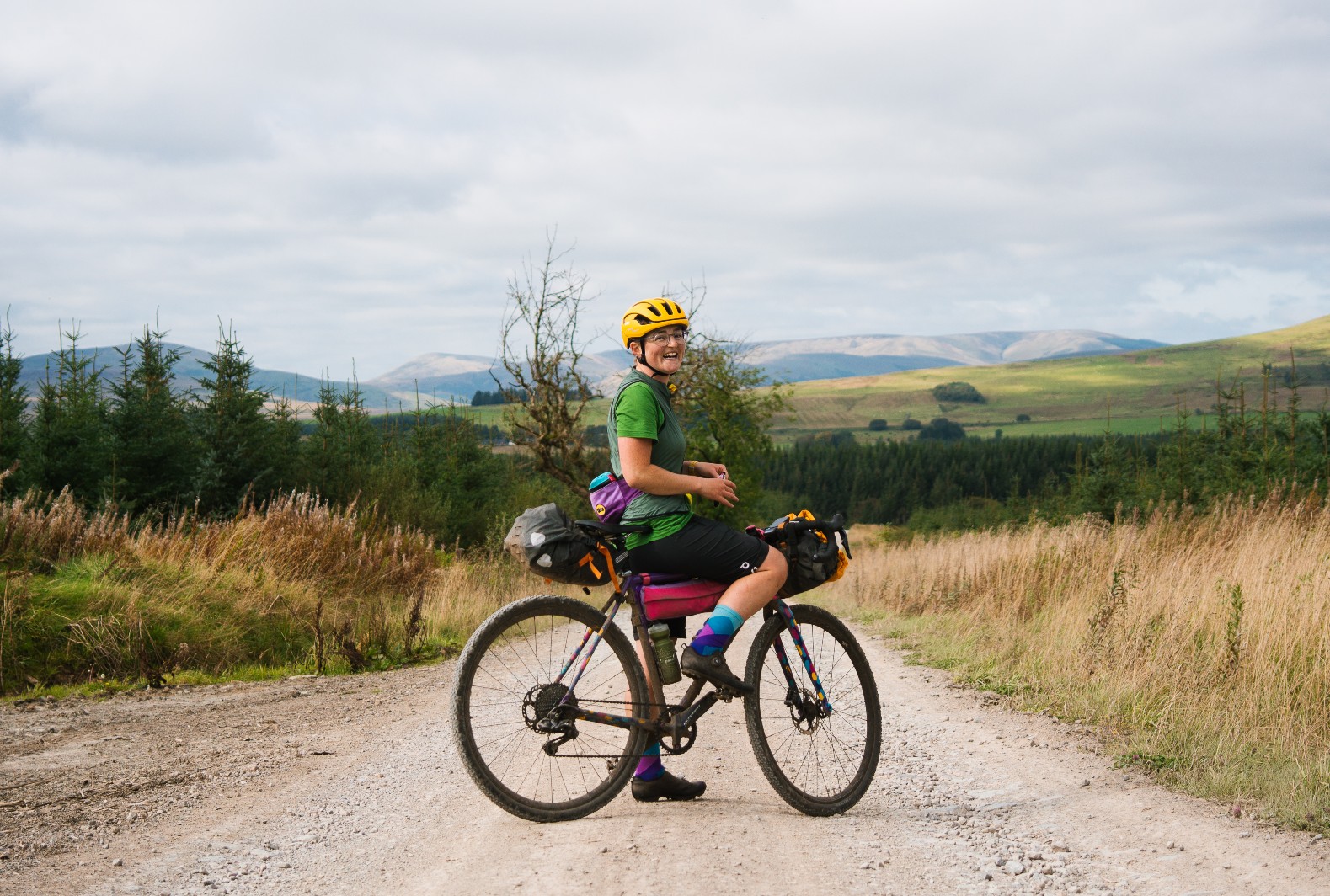Gravel is booming – from a steady stream of new bike releases and a burgeoning race scene attracting pros and amateurs alike, to a packed calendar of local events and, with it, the emergence of a new type of cycling club.
Following the rise of gravel cycling as we now know it, a wide range of gravel-centric riding communities have sprung up to connect like-minded dirt lovers, tapping into the inclusivity of gravel, as well as its social appeal.
The growth of these clubs and groups has given existing cyclists a route to trying a new discipline, as well as offering an accessible entry point into cycling for those who previously didn’t ride.
From casual local clubs and shop rides, to groups with a core mission played out on gravel tracks, here we delve into these fast-growing communities and examine how they offer riders something different to the traditional cycling club scene.
Cycling’s inclusive discipline
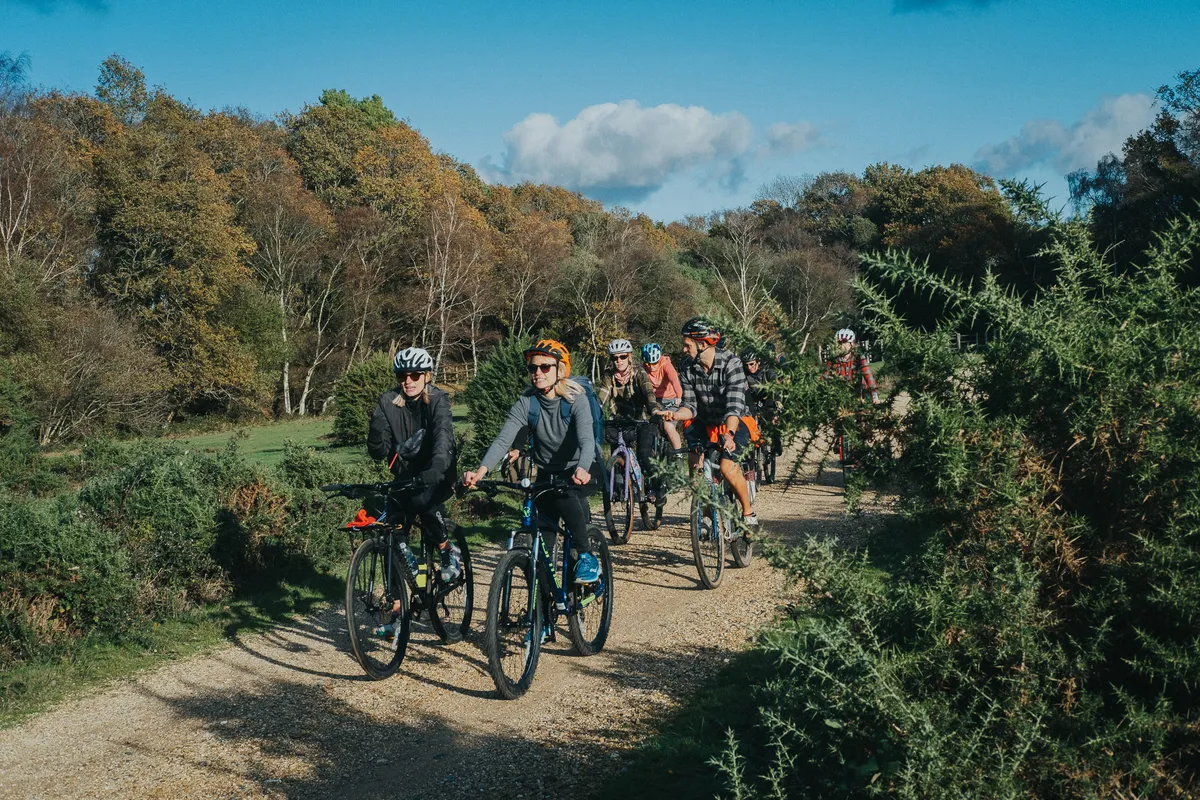
As cycling’s newest sub-discipline, gravel communities have had the opportunity to build their foundations as more inclusive spaces from the outset.
The result has been the establishment of a number of gravel clubs that cater specifically to underrepresented groups, or are led by members of them.
For example, the Lakes Gravel Gang and Switzerland’s GravELLE Club cater for women and non-binary riders. Yorkshire’s Reyt Good rides are women-led and LGBTQI+ inclusive, but also welcome male allies on their rides.
Meanwhile, the aim of the New Forest Off Road Club, based in the New Forest National Park in the south of England, is clear: “Our mission is to increase representation in the outdoors by providing guided, matriarchal experiences,” states the club’s website.
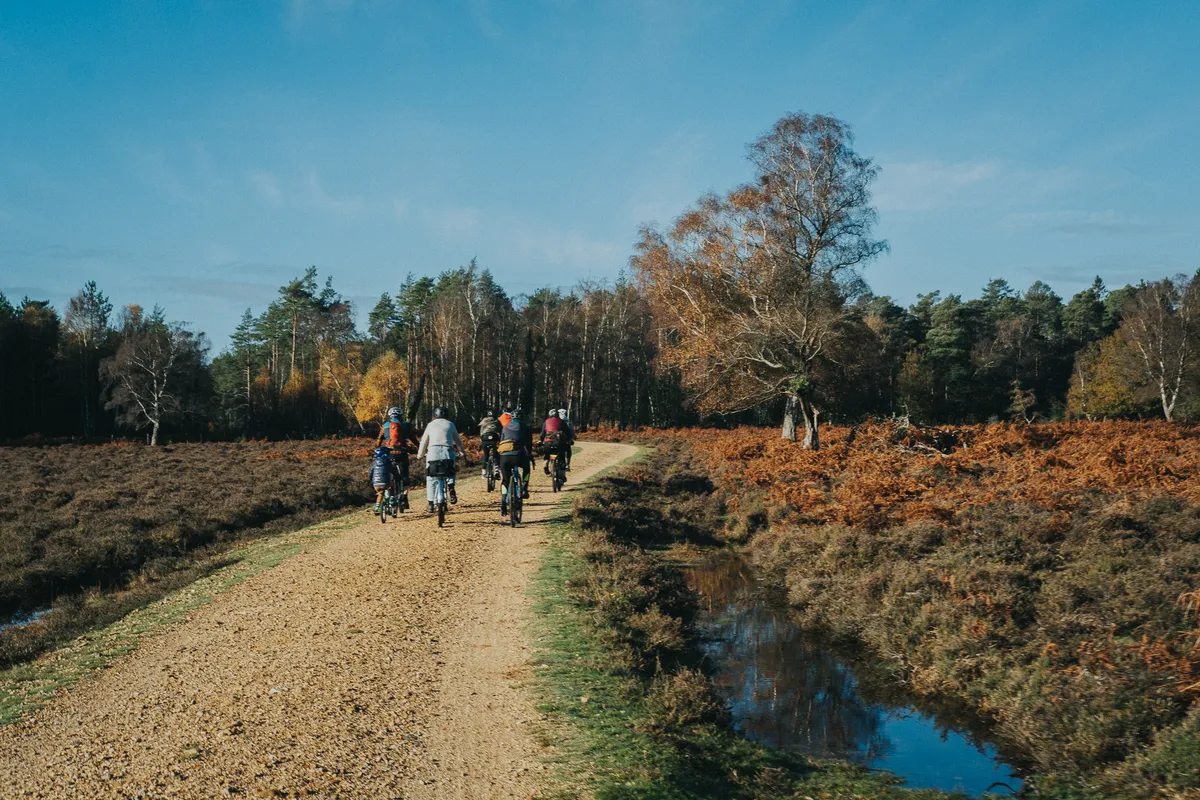
“We at the New Forest Off Road Club are women and non-binary-led,” explains ride leader Meredith Sneddon.
“That means anyone is welcome on our rides, but all of our ride leaders are women and non-binary. We’re really passionate about creating a community where people can uplift themselves out of the patriarchy.”
The New Forest Off Road Club offers a range of rides to suit all abilities, from beginner cyclists to those training for multi-day bikepacking races. Riders of all ages are encouraged to join, including young riders on family-friendly routes.
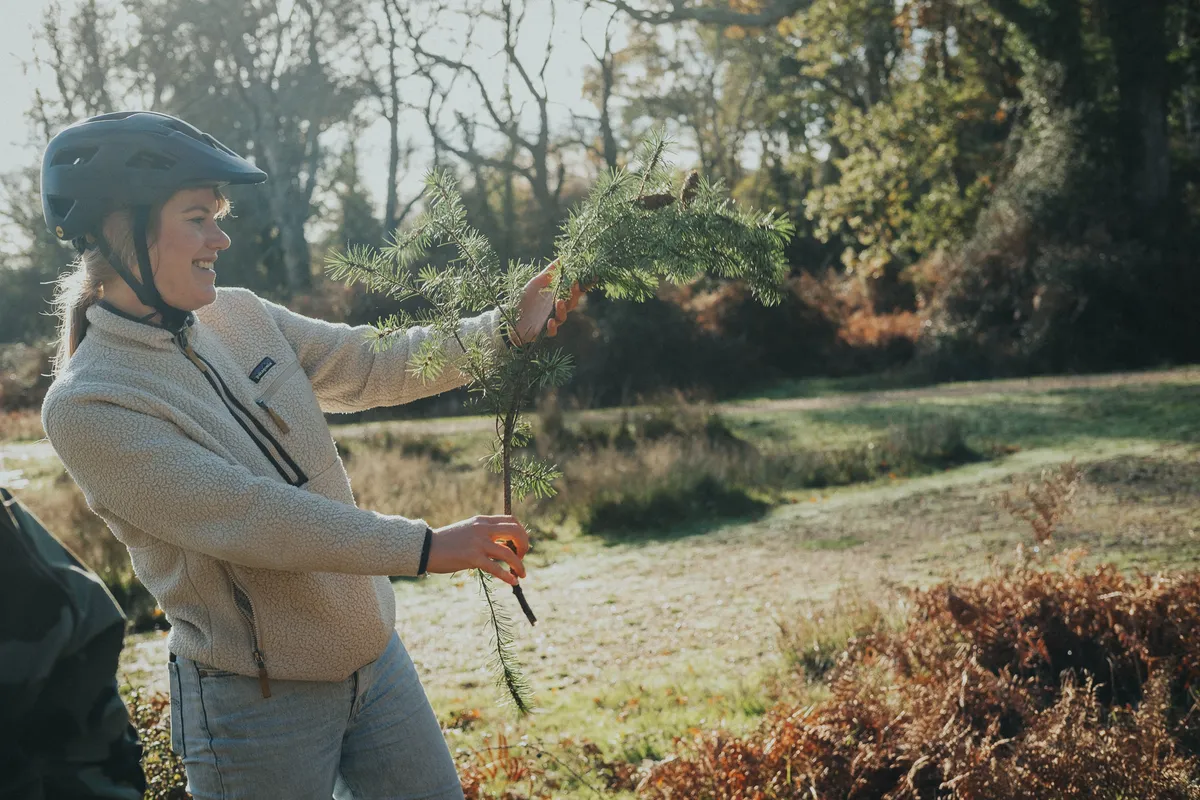
“A lot of the cycling industry is set up to serve a specific demographic, and we wanted to be a place where people who aren’t traditionally served can come and cycle,” says Sneddon.
The New Forest Off Road Club was founded by Nic Carass who, after enjoying the experience of gravel riding in a group at Brother in the Wild festival in 2020, started searching for similar, yet women-led groups.
Carass took matters into her own hands after discovering a lack of local women-led rides and, supported by Tom Farrell, co-owner of local shop The Woods Cyclery, started a weekly ride that soon became the New Forest Off Road Club in October 2020.
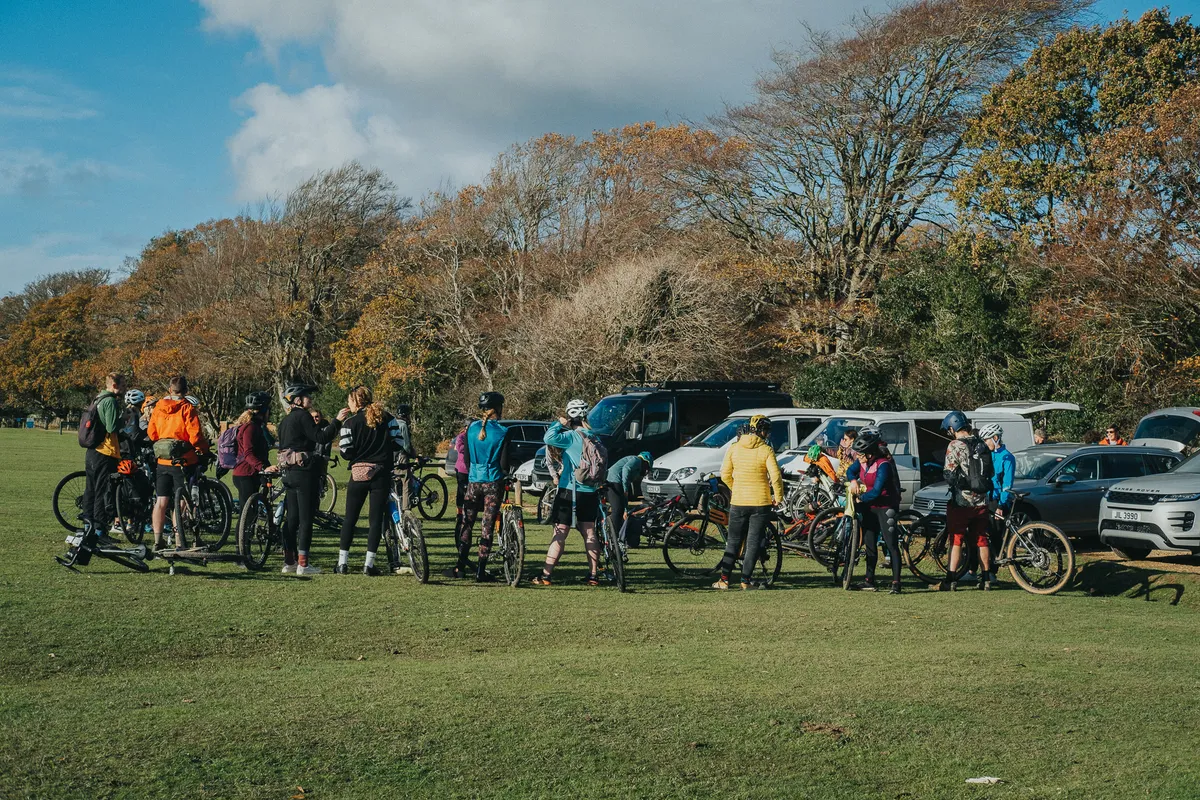
In the club’s first year, upwards of 200 riders joined more than 40 rides, while the club also hosted maintenance classes and talks.
“I was amazed that such a community existed,” says Sneddon, who is now one of ten ride leaders. “The fact that it didn’t matter what you wore, it didn’t matter what bike you were on, it didn’t matter how fit you were.
“It was just a group of people coming together who love bikes… who really want to ride bikes in a very community focussed way, not in a ‘who’s going to get to the top of the hill fastest’ way. I’ve never looked back, it’s changed my life.”
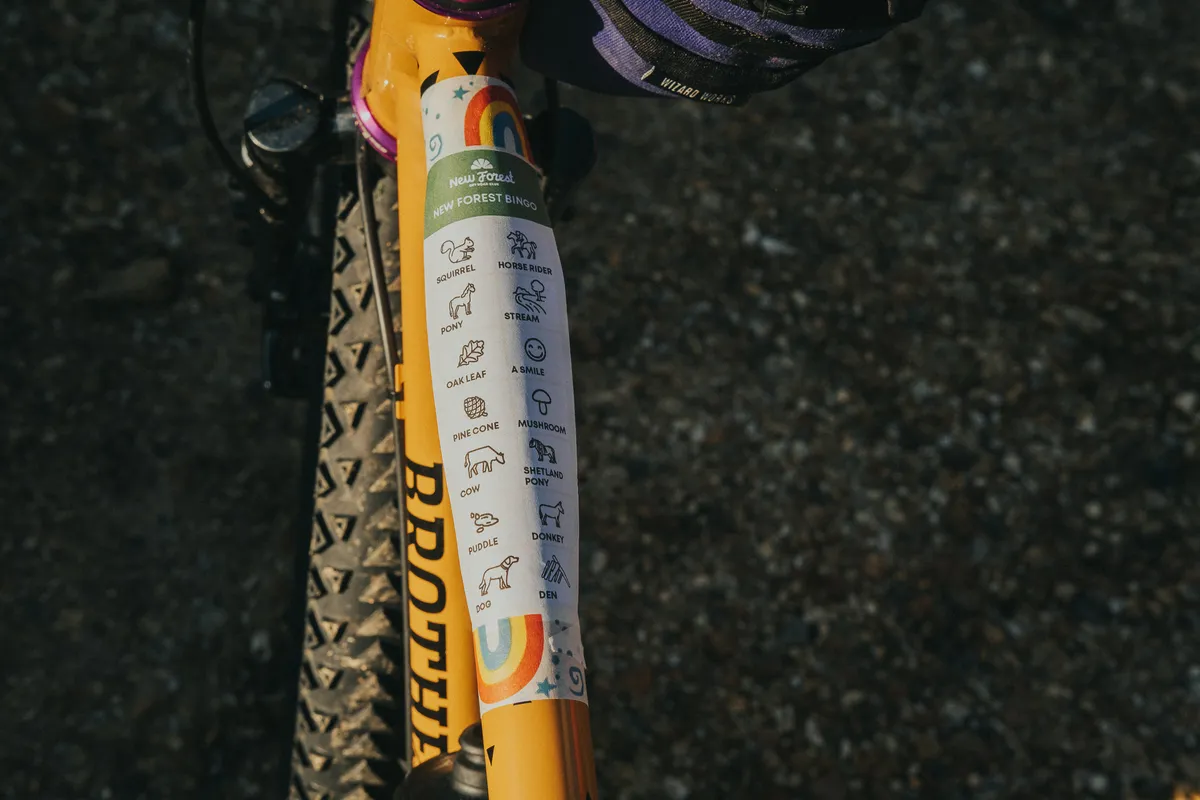
Gravel riding’s broad appeal, and the discipline’s inclusive focus, has also spread beyond local communities and into the race and events scene.
Some gravel race organisers, including Grinduro, offer an open-gender race category, and Scotland’s Dukes Weekender gravel enduro hosts a route and category for adaptive riders.
In the US, the new LifeTime Grand Prix race series, which includes gravel’s most well-known race, Unbound, has a $250,000 prize purse, split equally between men and women.
Social rides come to the fore
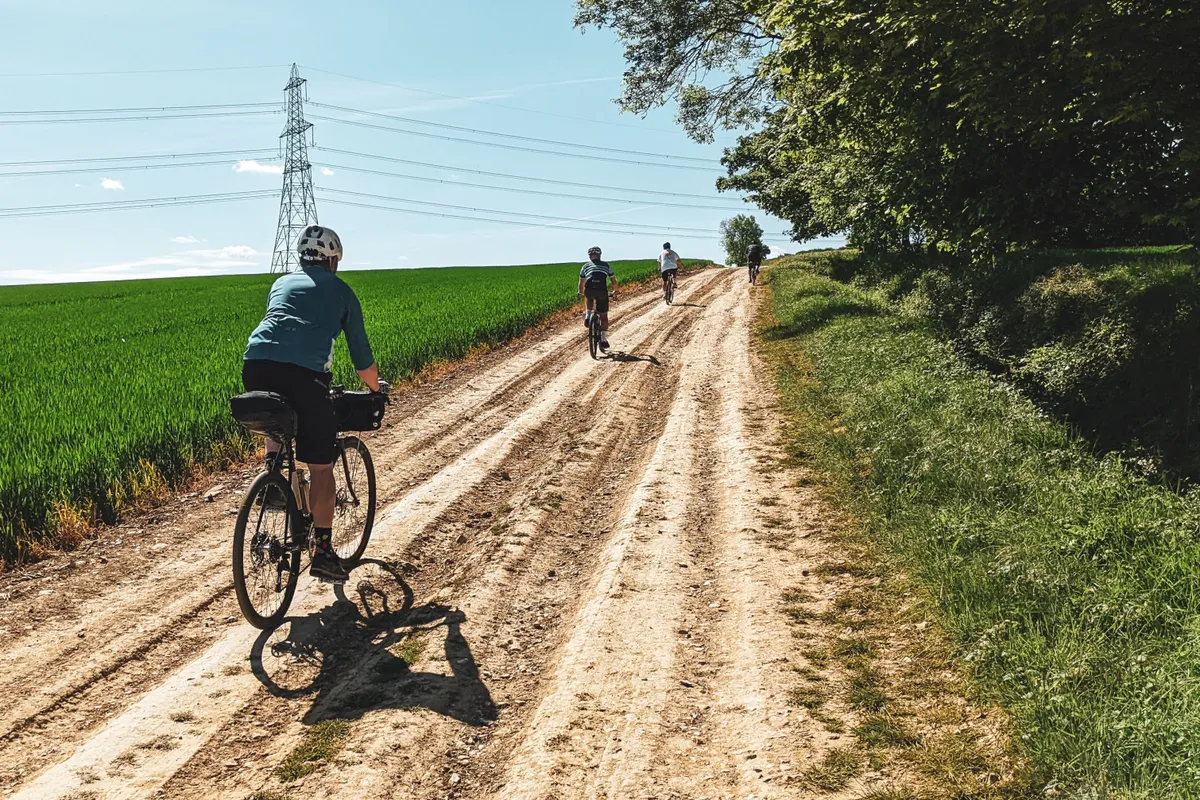
While there is a growing number of competitive gravel events, many gravel communities are focussed on the social aspect of riding, rather than facilitating training rides or race teams.
When they noticed the lack of social off-road cycling in north Essex, Matt Walker and Sam Hester started to share routes and meeting times on an Essex Gravel Facebook page. A local riding group soon formed; the aptly-named Field Trippers.
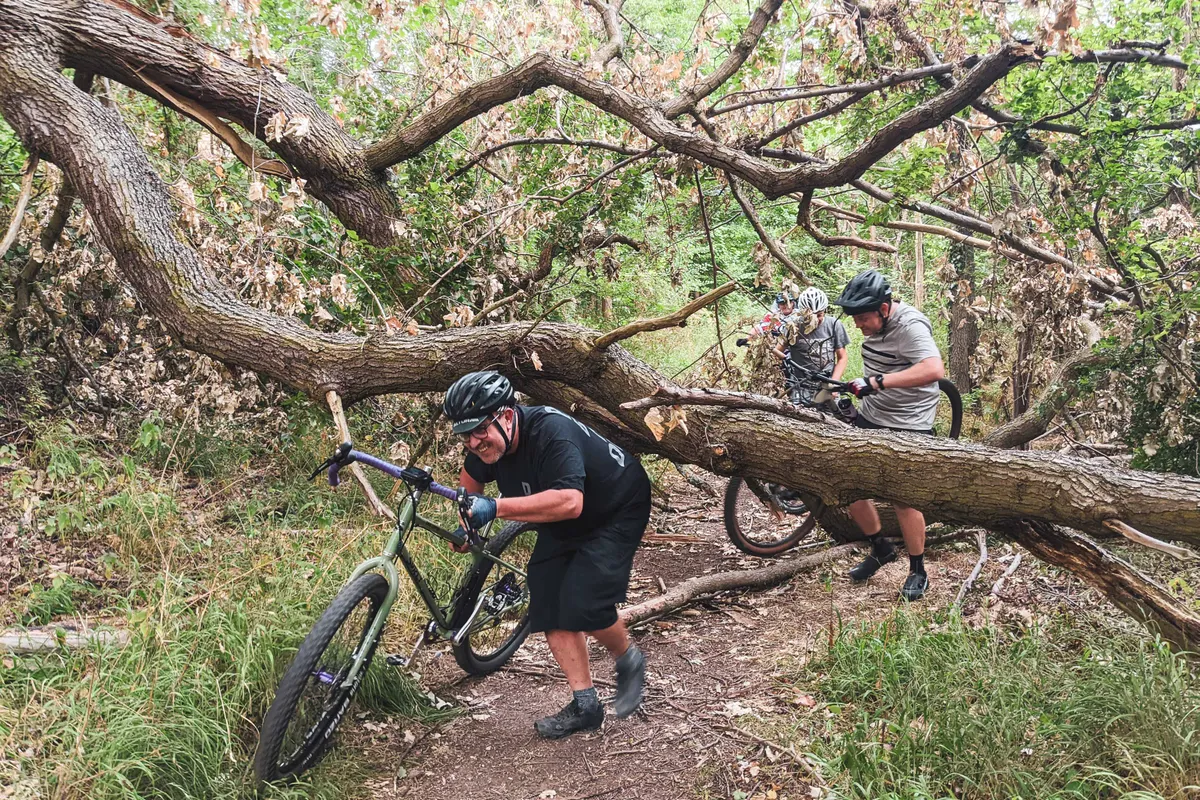
“Our aim is for people to have fun on their bikes,” explains Hester. “Whoever the person, whatever the bike. We want to encourage people to explore their local area and all-terrain cycling is a great way to do that.”
The social element of the club is prioritised, which, Hester says, sees cycling as more of a pastime than a sport.
“We never take our riding too seriously and make regular stops for chats, coffee, photos,” adds Hester.
Any bike goes
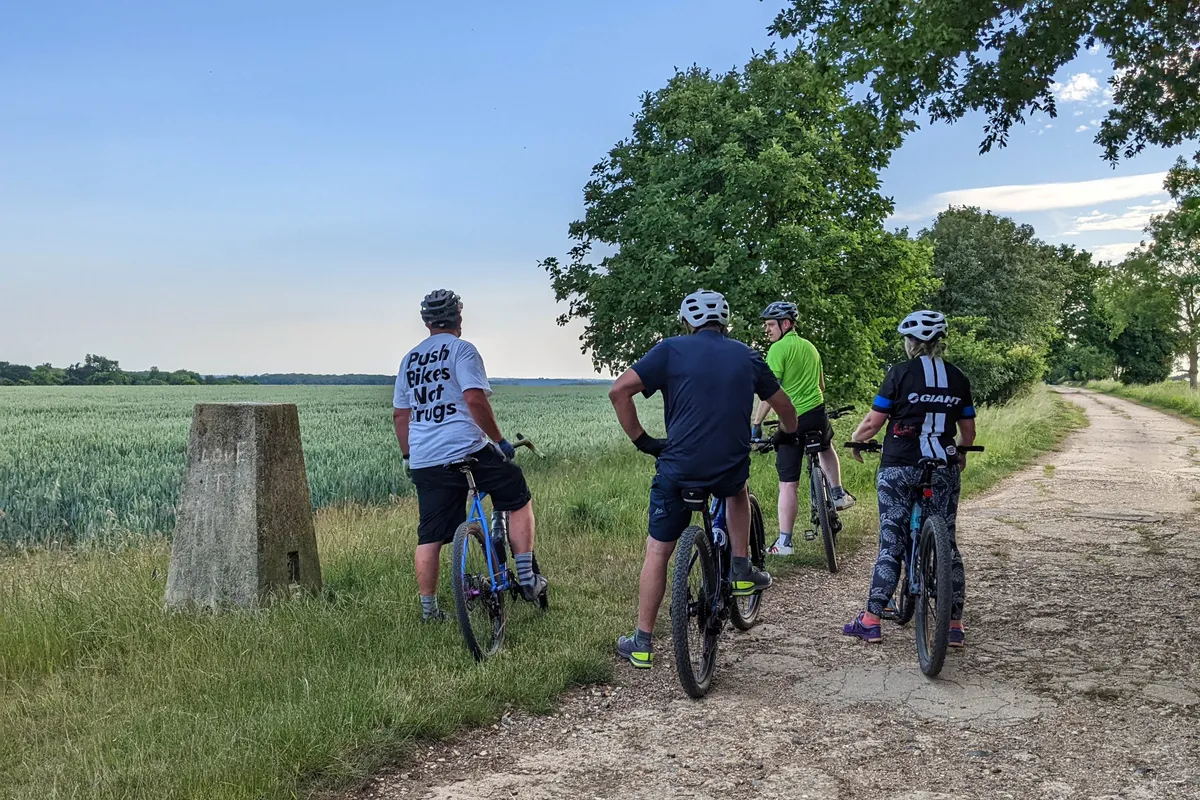
You might be thinking, 'If I want to join a gravel club, then I’ll need to get a gravel bike?' Well, in most cases, you’d be wrong, despite the booming sales of gravel bikes.
On most community gravel rides you’ll find an array of different bikes, including rigid flat-bar rigs, lightweight cross-country bikes, sturdy hybrids with chunky tyres, cyclocross bikes, singlespeeds and, of course, drop-bar gravel bikes. Not to mention the 90s MTB throwbacks.
Sam Hester of Field Trippers recommends a bike fitted with at least 35mm-wide tyres to handle the group’s local terrain in Essex, dependent on weather and skill level.
“Gravel? We don’t see much of that,” says Hester. “Mostly quiet lanes, field edges, grassy bridleways and rutted byways. We have riders on gravel bikes, mountain bikes, ebikes and everything in between.”
Throwing out the rulebook
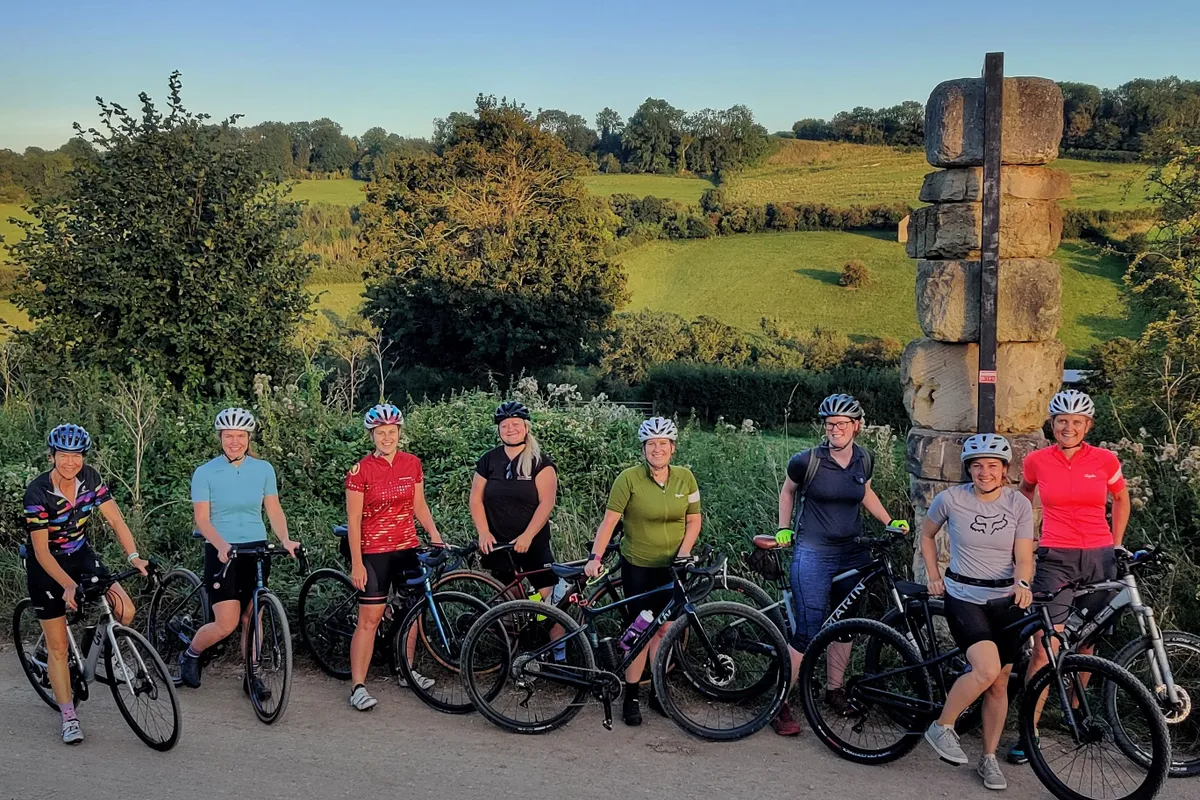
If the cycling disciplines were a family, gravel would be the rebellious and alternative yet laid-back sibling.
Unlike many road cycling clubs, you’re unlikely to find riders in gravel clubs donned with matching jerseys.
For some, you might not see any lycra at all, and an open-ended dress code runs through all of the gravel riding groups we spoke to, helping to break down some of the tribalism riders can experience in other disciplines.
Becoming affiliated with a governing body, such as British Cycling, has also been the norm for many road cycling clubs, allowing members to race for their respective clubs. As the gravel racing scene is as yet, largely, unregulated, many gravel communities remain unaffiliated.
Formal training, whether that be intervals or the ability to ride in a paceline within a group, is certainly less visible in gravel clubs than you’ll find in road cycling clubs. However, one initiative is aiming to provide riders with the skills they need to flourish off-road.
While the School Of Rocks was founded in Bristol, ‘schools’ can now be found in 11 cities across the UK, as well as in the Netherlands, Dubai, Switzerland and the United States.
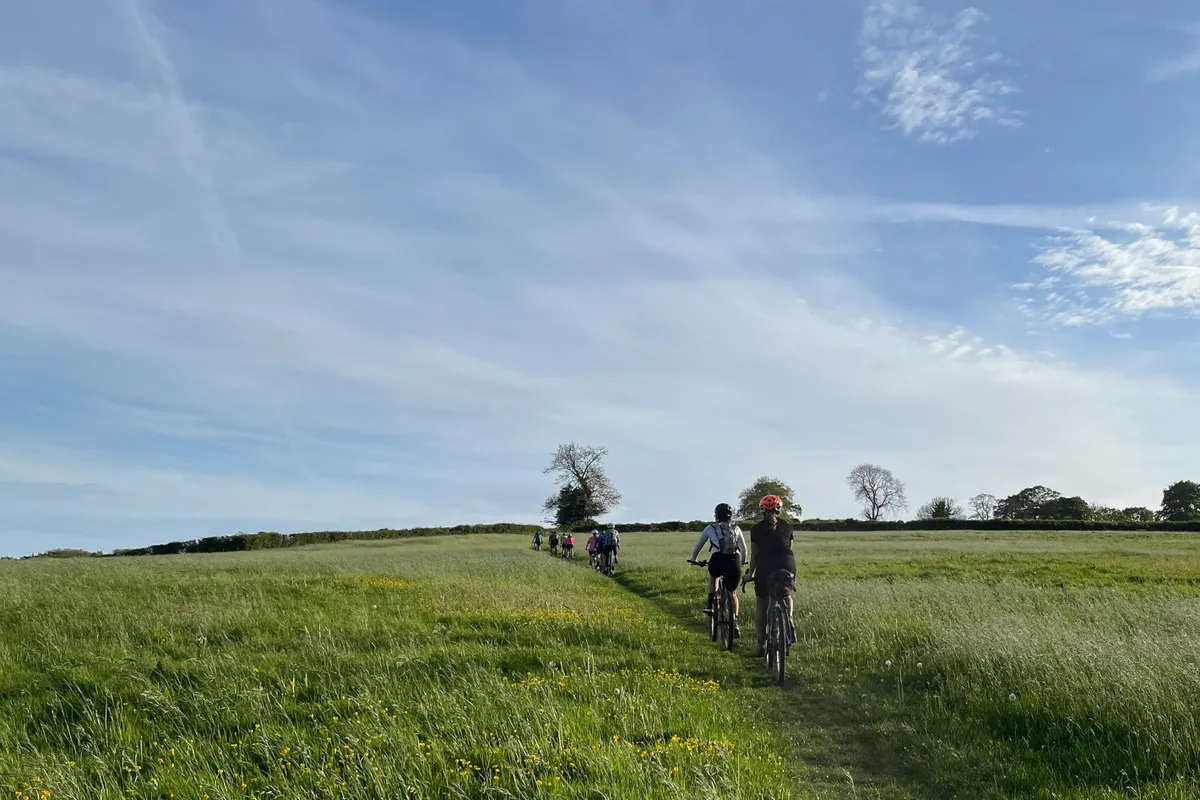
“After lockdown, I saw lots of my friends buying second-hand cyclocross bikes and gravel bikes, trying to get into off-road riding, but for whatever reason it wasn’t clicking for them,” explains El Jaskowska, founder of the School of Rocks.
“They might have found a route online to try and then found out it was a lot more technical than they were prepared for. They might have had an experience that put them off. Or just struggled to know where to go or who to go with.”
The women-led School of Rocks is designed to break down some of the complexity of off-road riding into a more manageable 'toolkit', including learning how to deal with the many different surfaces thrown up by ‘gravel’ riding.
The School of Rocks ‘curriculum’, as its described, is a schedule of weekly rides designed to tackle different elements of off-road riding.
Students start easy with smooth gravel and flatter fire roads and rides gradually increase in difficulty, until at week six riders are more confident taking on looser climbs and descending steeper and rockier trails.
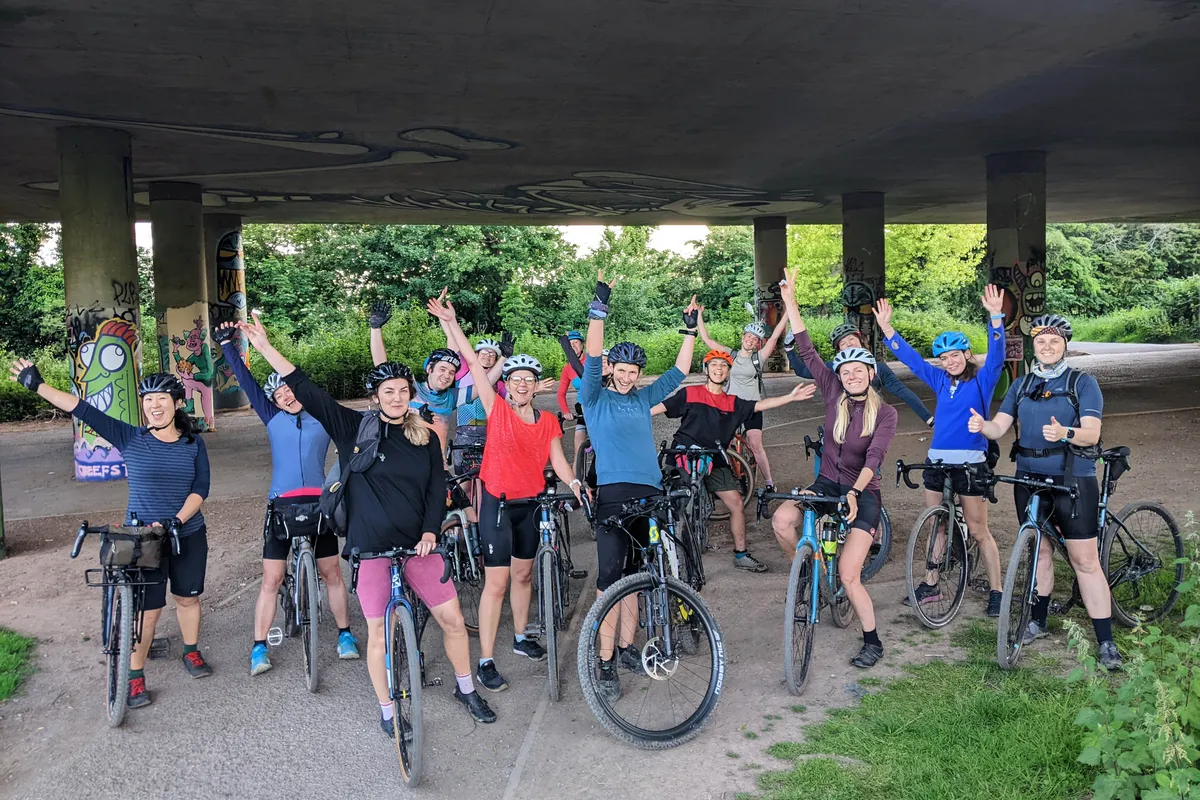
“While I was doing these weekly rides in Bristol, people were messaging me on Instagram saying ‘I wish we had this in Cardiff’, ‘I wish we had this in Edinburgh’, and I realised that there was no reason why you couldn’t," Jaskowska says.
"I wrote up what I’d done in each ride or lesson into what I called the curriculum. We ran our first term, then [another] the following autumn.
“We’ve had around 100 women and non-binary riders join us for each term. What’s been really amazing this year has been that London, Cardiff and Edinburgh have become self-sustaining communities, as well as branching out overseas.”
Novel clubs, novel formats
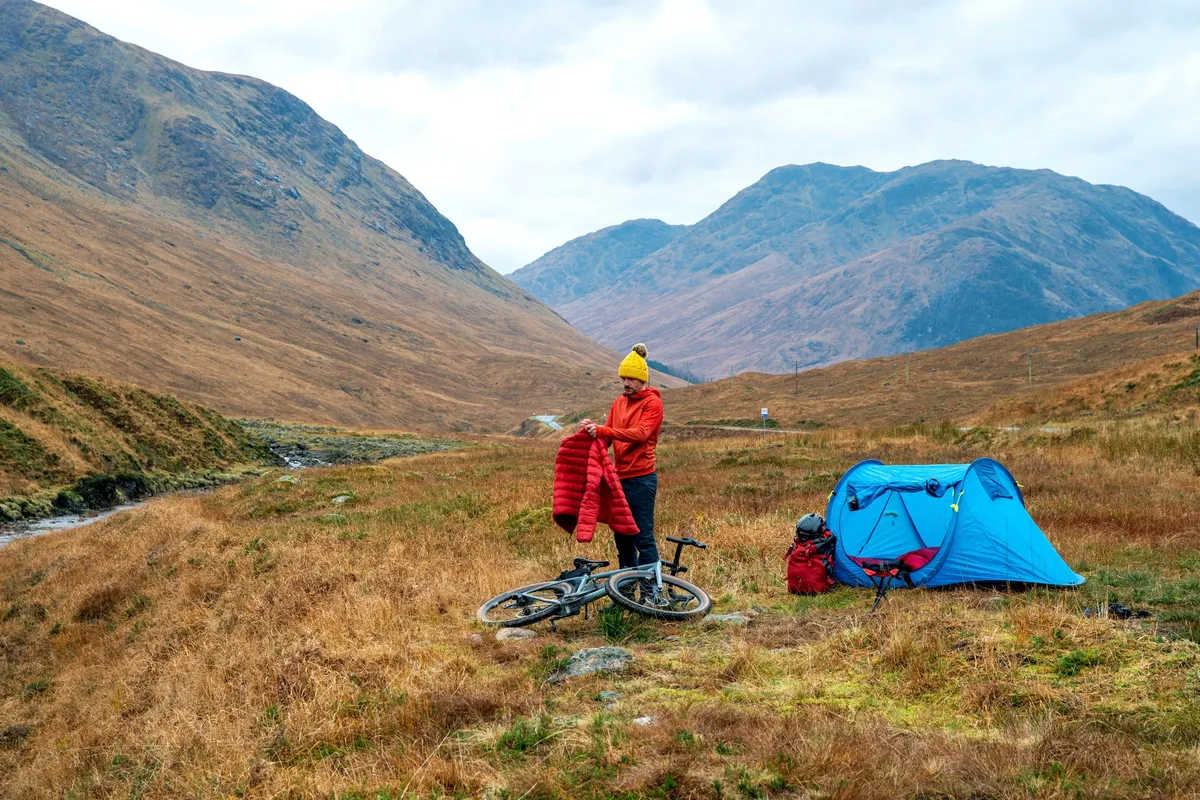
So far, we’ve seen how gravel has helped riders come together in their local community, but not all clubs are based in a specific town, city or county.
Bikepacking Buds is a UK-based online community of off-road riders who enjoy, as you might expect, overnight bikepacking adventures and multi-day trips.
You can either propose a trip (inviting other riders in the network to join you) or attend one of the upcoming bikepacking trips in their schedule.
“Last year, I put a call out on social media asking if anyone would be willing to join me on a bikepacking weekend in January, as part of a challenge to camp out each month of the year,” says Bikepacking Buds founder Saoirse Pottie.
“The response from the community was overwhelming with nearly 30 people turning up to camp out.”
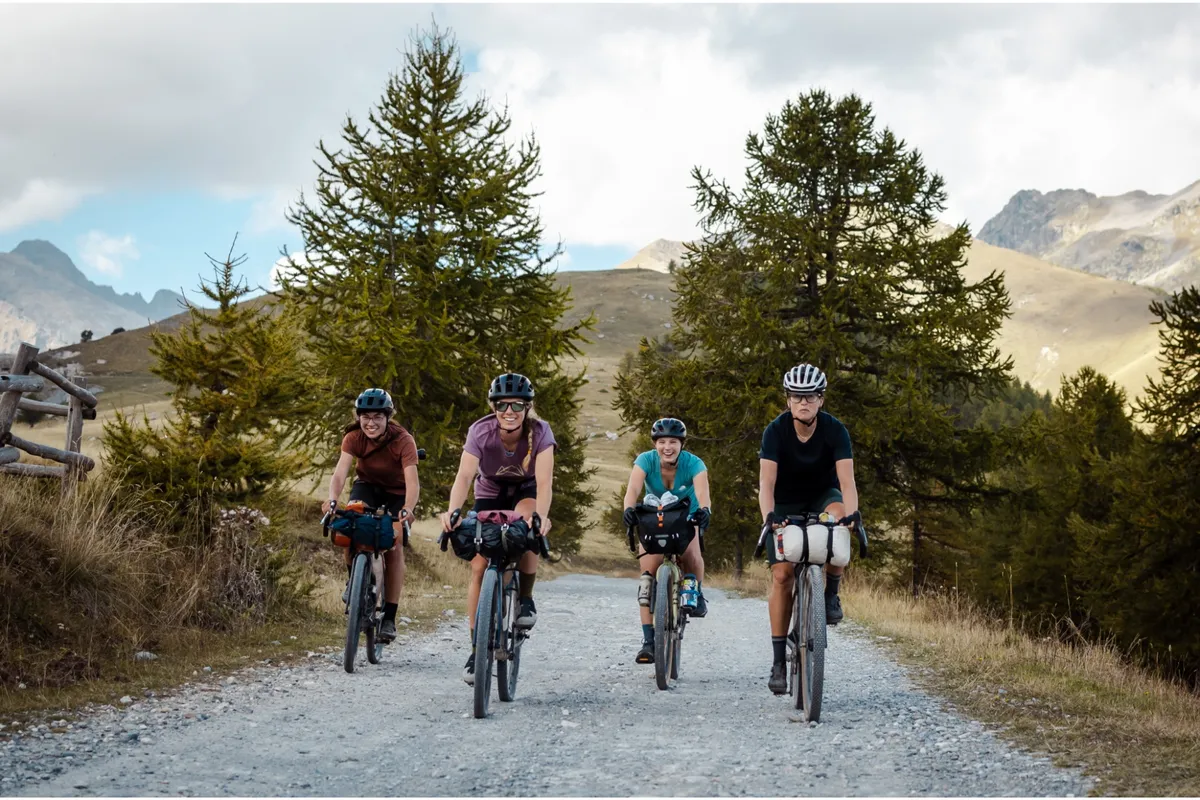
While Pottie acknowledges that there was already a significant interest in bikepacking, for many riders, including herself, the barrier was finding others to go with. With this in mind, she set up Bikepacking Buds.
Since the first trip in April 2021, Bikepacking Buds has enabled 29 community bikepacking trips, with more than 150 participants, thanks to an expanding volunteer network.
“Originally we were four [volunteers] and we are now 11, so this has also allowed us to focus on sharing knowledge and stories from within the community via monthly webinars, a podcast and regular blogs,” says Pottie.
The success of the initiative is apparent not only by the number of riders from all over the UK who have become involved, but their individual experiences.
“Many of the participants who sign up, end up signing up for several trips and, throughout this, you watch their confidence grow,” says Pottie.
“Lots of people are nervous when they sign up for their first trip, when they don’t know anyone, and some have never been bikepacking or on a group ride before.
“We’ve seen these same people fall in love with bikepacking and, by the end of the year, propose and create their own trip for others to join.”
"Life-changing"
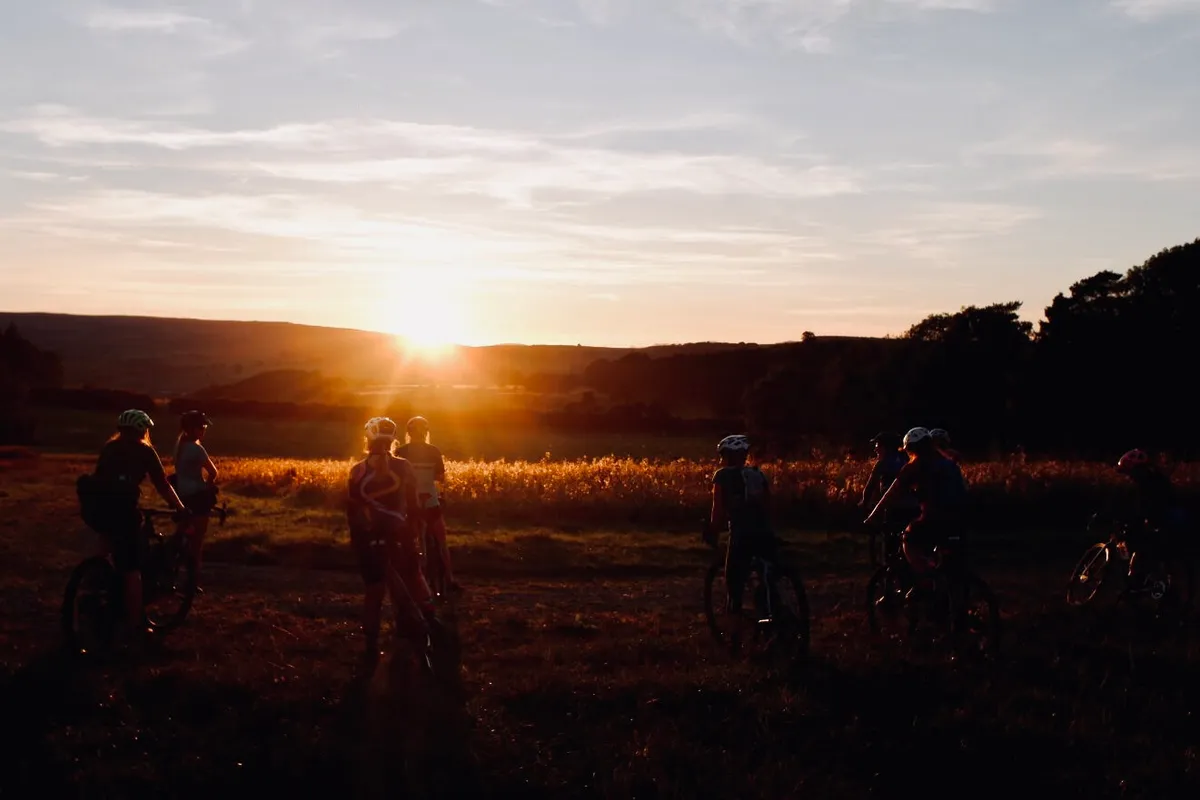
The final word goes to Jaskowska, who says feedback from past School of Rocks ‘Gravduates’ ranges from “life-changing” to claiming that the initiative has “made them feel much more at home where they live, having found their local community of people to ride and socialise with”.
Jaskowska adds: “What strikes me is that, what started as a toolkit to empower folks to share skills and build confidence became a toolkit to build local communities around the world."
